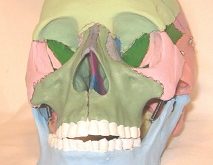Verb: trudge
Pronunciation: (trúj)
Trudge meaning:
- Walk heavily and firmly, as when weary, or through mud
Synonyms: slog, footslog, plod, pad, tramp, tromp

Noun: trudge
Pronunciation:(trúj)
Trudge meaning:
- A long difficult walk
Derived forms: trudged, trudging, trudges
Quotations:
- Simone Elkeles – Life is what you make it. If you think you can’t change the world, then go on and follow the path already carved out for you. But there are other roads to choose, they’re just harder to trudge through. Changing the world isn’t easy, but I sure as hell am going to keep trying. Are you?
- Rachel Cohn – I love snow for the same reason I love Christmas: It brings people together while time stands still. Cozy couples lazily meandered the streets and children trudged sleds and chased snowballs. No one seemed to be in a rush to experience anything other than the glory of the day, with each other, whenever and however it happened.
- Harper Lee – Daylight in my mind, the night faded. It was daytime and the neighborhood was busy. Miss Stephenie Crawford crossed the street to tell the latest to Miss Rachel. Miss Maudie bent over the azaleas. It was summertime, and two children scampered down the sidewalk toward a man approaching in the distance. The man waved, and the children raced each other to him. It was still summertime, and the children came closer. A boy trudged down the sidewalk dragging a fishing pole behind him. A man stood waiting with his hands on his hips. Summertime, and his children played in the front yard with their friend, enacting a strange little drama of their own invention. It was fall and his children fought on the sidewalk in front of Mrs. Dubose’s. The boy helped his sister to her feet and they made their way home. Fall, and his children trotted to and fro around the corner, the day’s woe’s and triumph’s on their face. They stopped at an oak tree, delighted, puzzled apprehensive.Winter, and his children shivered at the front gate, silhouetted against a blazing house. Winter and a man walked into the street, dropped his glasses, and show a dog. Summer, and he watched his children’s heart break. Autumn again, and Boo’s children needed him.
- Bill Bryson – Distance changes utterly when you take the world on foot. A mile becomes a long way, two miles literally considerable, ten miles whopping, fifty miles at the very limits of conception. The world, you realize, is enormous in a way that only you and a small community of fellow hikers know. Planetary scale is your little secret.Life takes on a neat simplicity, too. Time ceases to have any meaning. When it is dark, you go to bed, and when it is light again you get up, and everything in between is just in between. It’s quite wonderful, really. You have no engagements, commitments, obligations, or duties; no special ambitions and only the smallest, least complicated of wants; you exist in a tranquil tedium, serenely beyond the reach of exasperation, “far removed from the seats of strife,” as the early explorer and botanist William Bartram put it. All that is required of you is a willingness to trudge.There is no point in hurrying because you are not actually going anywhere. However far or long you plod, you are always in the same place: in the woods. It’s where you were yesterday, where you will be tomorrow. The woods is one boundless singularity. Every bend in the path presents a prospect indistinguishable from every other, every glimpse into the trees the same tangled mass. For all you know, your route could describe a very large, pointless circle. In a way, it would hardly matter.At times, you become almost certain that you slabbed this hillside three days ago, crossed this stream yesterday, clambered over this fallen tree at least twice today already. But most of the time you don’t think. No point. Instead, you exist in a kind of mobile Zen mode, your brain like a balloon tethered with string, accompanying but not actually part of the body below. Walking for hours and miles becomes as automatic, as unremarkable, as breathing.
- Dan Wells – In my biology class, we’d talked about the definition of life: to be classified as a living creature, a thing needs to eat, breathe, reproduce, and grow. Dogs do, rocks don’t, trees do, plastic doesn’t. Fire, by that definition, is vibrantly alive. It eats everything from wood to flesh, excreting the waste as ash, and it breathes air just like a human, taking in oxygen and emitting carbon. Fire grows, and as it spreads, it creates new fires that spread out and make new fires of their own. Fire drinks gasoline and excretes cinders, it fights for territory, it loves and hates. Sometimes when I watch people trudging through their daily routines, I think that fire is more alive than we are–brighter, hotter, more sure of itself and where it wants to go.
- Sylvia Plath – His lyrical whistle beckoned me to adventure and forgetting. But I didn’t want to forget. Hugging my grudge, ugly and prickly, a sad sea urchin, I trudged off on my own, in the opposite direction toward the forbidding prison. As from a star I saw, coldly and soberly, the separateness of everything. I felt the wall of my skin; I am I. That stone is a stone. My beautiful fusion with the things of this world was over.The Tide ebbed, sucked back into itself. There I was, a reject, with the dried black seaweed whose hard beads I liked to pop, hollowed orange and grapefruit halves and a garbage of shells. All at once, old and lonely, I eyed these razor clams, fairy boats, weedy mussels, the oyster’s pocked gray lace there was never a pearl and tiny white “ice cream cones.” You could always tell where the best shells were at the rim of the last wave, marked by a mascara of tar. I picked up, frigidly, a stiff pink starfish. It lay at the heart of my palm, a joke dummy of my own hand. Sometimes I nursed starfish alive in jam jars of seawater and watched them grow back lost arms. On this day, this awful birthday of otherness, my rival, somebody else, I flung the starfish against a stone. Let it perish.
- Darynda Jones – Garrett must have sensed I was awake. “Hey Detective,” he said to Uncle Bob, who was now trudging across the grating toward us. “I think we’re losing her. I have no choice but to perform mouth-to-mouth.””Don’t you dare,” I said, my lids still in lockdown.
- Virginia Woolf – One feels even in the midst of the traffic, or waking at night, Clarissa was positive, a particular hush, or solemnity; an indescribable pause; a suspense before Big Ben strikes. There! Out it boomed. First a warning, musical; then the hour, irrevocable. The leaden circles dissolved in the air. Such fools we are, she thought, crossing Victoria Street. For Heaven only knows why one loves it so, how one sees it so, making it up, building it round one, tumbling it, creating it every moment afresh; but the veriest frumps, the most dejected of miseries sitting on doorsteps (drink their downfall) do the same; can’t be dealt with, she felt positive, by Acts of Parliament for that very reason: they love life. In people’s eyes, in the swing, tramp, and trudge; in the bellow and the uproar; the carriages, motor cars, omnibuses, vans, sandwich men shuffling and swinging; brass bands; barrel organs; in the triumph and the jingle and the strange high singing of some aeroplane overhead was what she loved; life; London; this moment in June.
- George Orwell – In our time, political speech and writing are largely the defense of the indefensible. Things like the continuance of British rule in India, the Russian purges and deportations, the dropping of atom bombs on Japan, can indeed be defended, but only by arguments which are too brutal for most people to face, and which do not square with the professed aims of political parties. Thus political language has to consist largely of euphemism, question-begging and sheer cloudy vagueness. Defenseless villages are bombarded from the air, the inhabitants driven out into the countryside, the cattle machine-gunned, the huts set on fire with incendiary bullets: this is called pacification. Millions of peasants are robbed of their farms and sent trudging along the roads with no more than they can carry: this is called transfer of population or rectification of frontiers. People are imprisoned for years without trial, or shot in the back of the neck or sent to die of scurvy in Arctic lumber camps: this is called elimination of unreliable elements.
Sample sentences:
- Catch that last episode of Doctor Who? Oh, right. You were trudging through the Pit of Eternal Damnation!
- For, after all, every one who wishes to gain true knowledge must climb the Hill Difficulty alone, and since there is no royal road to the summit, I must zigzag it in my own way. I slip back many times, I fall, I stand still, I run against the edge of hidden obstacles, I lose my temper and find it again and keep it better, I trudge on, I gain a little, I feel encouraged, I get more eager and climb higher and begin to see the widening horizon. Every struggle is a victory. One more effort and I reach the luminous cloud, the blue depths of the sky, the uplands of my desire.
- I trudged back to my bedroom and pushed the door open, intending to wash my face or brush my teeth or make some stab at smoothing my hair, because I thought it might make me feel a little less trampled. Eric was sitting on my bed, his face buried in his hands. He looked up at me as I entered, and he looked shocked. Well, no wonder, what with the very thorough takeover and traumatic changing of the guard.
- We were a strange little band of characters trudging through life sharing diseases and toothpaste, coveting one another’s desserts, hiding shampoo, borrowing money, locking each other out of our rooms, inflicting pain and kissing to heal it in the same instant, loving, laughing, defending, and trying to figure out the common thread that bound us all together.
- More than anything, he wanted to return to the house with the same look of peace that he’d seen on Pastor Harris’s face, but he trudged through the sand, he couldn’t help feeling like an amateur, someone searching for God’s truths like a child searching for seashells.
- Everyone needs a hobby,” he said. “And everyone needs a miracle or two, just to prove life is more than just one long trudge from the cradle to the grave.
- But that inadequacy, or feeling of inadequacy, never really goes away. You just have to trudge ahead in the rain, regardless.
- I always thought I would die before the end. I trudged on knowing I was doomed. But my friends have breathed love into me, breathed my faith back into my bones. They’ve made me want to live.
- I’ll see ya,” I said in a neutral tone. I wasn’t sure whether Tobe was annoyed by Simon or by myself, or by both of us. “I can walk home,” I added as Simon trudged alongside me to the walkway leading up to Wind Song.“I can see that. You’re very talented at it.
- White in the moon the long road lies,The moon stands blank above;White in the moon the long road lies that leads me from my love.Still hangs the hedge without a gust,Still, still the shadows stay:My feet upon the moonlit dust pursue the ceaseless way.The world is round, so travelers tell,And straight through reach the track,Trudge on, trudge on, ’twill all be well,The way will guide one back. But ere the circle homeward hies far, far must it remove:White in the moon the long road lies that leads me from my love.
- My grief fills rooms. It takes up space and it sucks out the air. It leaves no room for anyone else. Grief and I are left alone a lot. We smoke cigarettes and we cry. We stare out the window at the Chrysler Building twinkling in the distance, and we trudge through the cavernous rooms of the apartment like miners aimlessly searching for a way out . Grief is possessive and doesn’t let me go anywhere without it. I drag my grief out to restaurants and bars, where we sit together sullenly in the corner, watching everyone carry on around us. I take grief shopping with me, and we troll up and down the aisles of the supermarket, both of us too empty to buy much. Grief takes showers with me, our tears mingling with the soapy water, and grief sleeps next to me, its warm embrace like a sedative keeping me under for long, unnecessary hours. Grief is a force and I am swept up in it.
- Most people avoid me, easily leaving two feet between us, and here is this little warrior trudging into battle without armor.Terrified I’ll break her, I weave my arms around her and hug her back. My eyes shut when she settles furthering into me. I rest my cheek on her head and simply breathe.
- The tattered lace of darkness still hung over the city, as if night were a grim bride trudging to the horizon, trailing her shadowy train.
- They limp and halt, they’re all wrinkled, drawn, they squint to the side, can’t look you in the eyes, and always bent on duty, trudging after ruin, maddening, blinding ruin. But Ruin is strong and swift she outstrips them all by far, stealing a march, leaping over the whole wide earth to bring mankind to grief.
- We climbed this hill. Each step up we could see farther, so of course we kept going. Now we’re at the top. Science has been at the top for a few centuries now. And we look out across the plain and we see this other tribe dancing around above the clouds, even higher than we are. Maybe it’s a mirage, maybe it’s a trick. Or maybe they just climbed a higher peak we can’t see because the clouds are blocking the view. So we head off to find out—but every step takes us downhill. No matter what direction we head, we can’t move off our peak without losing our vantage point. So we climb back up again. We’re trapped on a local maximum. But what if there is a higher peak out there, way across the plain? The only way to get there is to bite the bullet, come down off our foothill and trudge along the riverbed until we finally start going uphill again. And it’s only then you realize: Hey, this mountain reaches way higher than that foothill we were on before, and we can see so much better from up here. But you can’t get there unless you leave behind all the tools that made you so successful in the first place. You have to take that first step downhill.
 Spinfold VisualDictionary-Evolutree- Technorip-Amazing Facts and much more.
Spinfold VisualDictionary-Evolutree- Technorip-Amazing Facts and much more.





